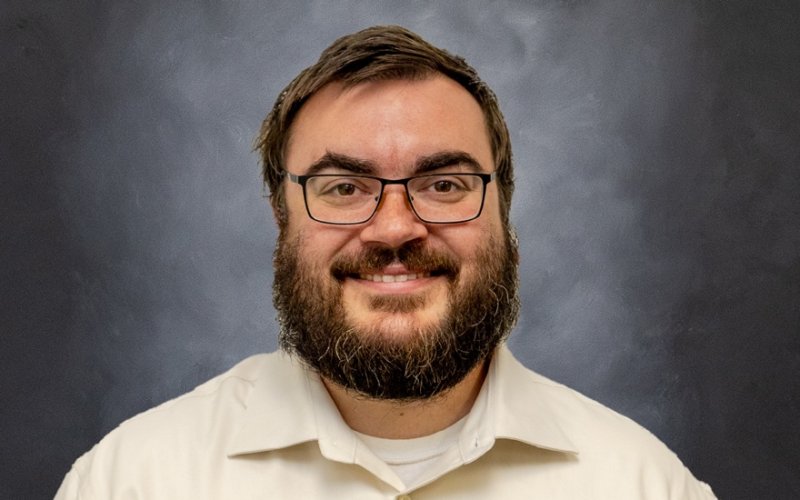Meet PhD Student Ryan Schneider

Ryan Schneider, an eighth-year PhD student in the McDonough lab, recently published his first-authored paper titled “Mycobacterium tuberculosis RecA intein in its native host".
The focus of this paper was to understand how the RecA intein (a self-splicing protein element specific to M. tuberculosis) contributes to DNA repair and replication. Schneider demonstrated that splicing of the intein in its host is not the same as what occurred during in vitro studies. IE conditions that inhibit splicing in vitro, have no effect on the intein in M. tuberculosis. DNA damaging conditions increase the amount of splicing and off-pathway cleavage of the intein in M. tuberculosis. Additionally, Schneider provided the first reported evidence that an off-pathway product of splicing, the N-extein, is functionally able to activate LexA cleavage (a surrogate for the SOS response) in E. coli. Altogether, the paper presents evidence that the M. tuberculosis RecA intein is not just a genetic parasite, but has likely been co-opted via exaptation to provide a benefit to its host.
Researchers at the McDonough lab are interested in understanding how M. tuberculosis senses environmental signals and integrates them into a biological response, with an emphasis on the secondary messenger cyclic-AMP. This publication provides new insights to M. tuberculosis biology and highlights the potential role of inteins in regulating key processes, contributing to its persistence and adaptability during infection.
Schneider received his Bachelor of Science from Bloomsburg University in Pennsylvania, then came to Albany to get a master's degree in forensic biology. During his master's, he realized his passion and interest was more in basic research than forensic biology. While interning in the McDonough lab, he learned about the biomedical sciences program at the University at Albany. He then joined the University at Albany Biomedical Sciences PhD program with interest in working with pathogenic microbes.
Schneider hopes to one day run his own lab, focusing on adaptation of pathogens to physiological environments and antibiotics. Some advice he would like to give to new students and prospective graduate students is: "Science is more a way of thinking than it is a body of knowledge. Practice opening your mind to new ideas and perspectives and the science will flow easily. Don't be afraid to say "I don't know", we are all in science precisely because of that reason: we don't know everything!”


